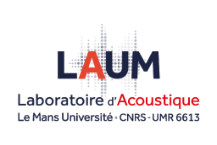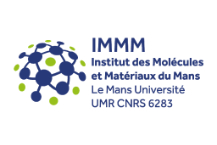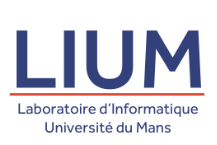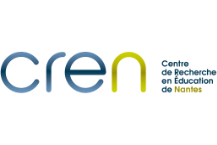ABOUT US
ENSIM - Engineering school
About us
ENSIM is an engineering school, and a member of the Archimède Group and the French Engineering School Conference of Directors (CDEFI).
It recruits students having successfully completed their first two years of higher education with a grounding in scientific culture and an open-minded approach to their environment.
The training is based on the quality of support and assistance provided by recognized research-active staff.
ENSIM is a centre for student life. It seeks to establish a genuine, close-knit year-group, with social relations being further enhanced by people’s diverse backgrounds and international origins.
Business partnerships (sponsors, work placements, and projects) enable students to start their professional career.
Active alumni support facilitates the employment of recent graduates.
ENSIM offers two 2 specialisations, each with two options
Acoustic and Instrumentation
> Vibrations, Acoustics (VA) to improve vibratory and acoustic comfort.
> Systems and Processes for the Measurement and the Instrumentation (SPMI) to devise intelligent measuring systems.
Computer Science
> Architecture of Real-Time and Embedded Systems (ASTRE) to develop embedded software and smart devices.
> Person-System Interaction (IPS) to invent tomorrow’s digital society.
OVERVIEW
- 3-year course running from 3rd to 5th year of higher education
- Masters’ degree in Engineering, accredited by the French Accreditation Board for Engineering Education (CTI)
- EUR-ACE European quality label
- The school is part of the Université du Maine and benefits from all its facilities
- Underpinned by internationally recognized research laboratories in acoustics, optics, micro-technologies, IT, chemistry, physics, etc.
- Total enrolment fees (including social security contributions): in 2009, €800 standard, €50 for recipients of a French State grant
A FEW FIGURES
- Founded in 1995
- Over 500 qualified engineers
- 70 students per year
- 26 permanent staff
- Over 80 supernumerary staff from industry
- 10 administrative and technical staff
- 12 rooms for practicals
- 1 cleanroom
- 1 testing hall
Academic curiculum
Acoutic and Instrumentation
VIBRATIONS, ACOUSTICS Option
The car industry, aerospace industry, architecture, and transport are all natural research fields for improving acoustic quality.
Good vibrations are music, bad vibrations are a source of inconvenience and discomfort.
Overview
Acoustics is the science of sound. The task of an acoustic engineer is to analyse, control, and reduce sound and vibration pollution, thus helping improve the quality of life. ENSIM’s Vibrations/ Acoustics course is for all scientists, be they musicians or not, who are passionately interested in sound and vibration phenomena. The close links between science and music are often used as a lever for introducing useful notions for engineers.
Syllabus
The syllabus at ENSIM is designed to deliver scientific expertise enabling students to master all the stages in the design process for acoustic and vibratory engineering.
The main tools used in acoustics and vibration engineering are acoustic, vibratory, and vibro-acoustic metrology, digital modelling and simulation, data calibration, identification of signatures, diagnostics and decision-making, adjustment of active and passive control elements, and assessment and non-destructive testing (NDT).
Training in the VA option is based on the thirty years of experience of the Université du Maine’s Acoustics Laboratory, LAUM (French accreditation number CNRS 6613), the largest European laboratory in its field.
Careers
ENSIM VA graduates work in design, research and development, specialised consultancies, SMEs and major groups, as well as in research laboratories. Either working on their own or as part of a team, they supervise and set up innovative approaches and solutions to control sonic and vibratory fields. The disciplinary fields covered include automobile, aerospace, and railway acoustics, environmental acoustics, room acoustics, and musical acoustics.
SYSTEMS AND PROCESSES FOR THE MEASUREMENT AND THE INSTRUMENTATION Option (formerly MICRO-SYSTEMS AND OPTICAL METROLOGY Option)
In a period of miniaturisation and of technological challenges relating to the environment and sustainable development, information gathering and conditioning and decision-making are key issues for new technologies.
Overview
The SPMI option trains engineers with versatile skills in instrumentation, sensors, and measurement, specialising in micro-systems, acoustic micro-sensors, and acoustic, optical, and thermal sensors, providing them with the optical metrology tools required to characterise them. It provides skills for all those involved in the measuring process, from the physical process of information gathering, conditioning, and processing, through to decision-making.
Syllabus
The SPMI option is ideally suited to students passionate about advanced technology who are drawn to the world of the infinitely small and fascinated by the magical aspects of light and lasers. Students who are enthusiastic about the idea of making micro-systems will derive satisfaction from the ENSIM syllabus, as will those who wish to find out about the use of phototonic techniques for non-intrusive systems analysis. Everyone will be able to apprehend the behaviour of these devices via innovative technologies.
Careers
SPMI general engineers work in design, engineering, and research and development, as well as consultancy and manufacture, in all cutting-edge fields where sensors are essential for information gathering, such as the aerospace, automobile, and medical instrumentation industries, environment and sustainable development, industrial production, and process development and monitoring.
Computer Science
REAL-TIME AND EMBEDDED SYSTEMS ARCHITECTURE Option
The new era launched by the rapid emergence of embedded electronic systems has led to the creation of autonomous devices with a high level of interaction with users.
Overview
Fields using electronic systems such as transport (planes, trains, and automobiles), home automation (smart houses), and industry, require extensive development of smart devices, embedded systems and software in networks, smart cards, and mobile telephones and data terminals. Equally, real-time systems are increasingly widespread in the control of ever more complex industrial systems. The ASTRE option develops cutting-edge skills to enable graduates to drive innovation in ever-changing real-time and embedded systems.
Syllabus
The ASTRE option trains versatile engineers with industrial IT skills, with a slant towards digital electronics, in embedded and/or real-time systems, signal processing, and network and mobile transmission networks.
ASTRE provides students with skills in the design and implementation of complex IT systems requiring the ability to simultaneously master networks, hardware architecture, and software architecture. Constraints in the fields relate to miniaturisation, reducing energy consumption, and managing the required level of flexibility.
Careers
ASTRE engineers work in a large number of fields such as industry (manufacture, imaging, robotics, etc.), transport (automobile, aerospace, and trains), multimedia (telecommunications, digital television, etc.), communication networks, and home automation.
These fields draw on skills in system design, engineering, research and development, consultancy, studies, and testing.
PERSON-SYSTEM INTERACTION Option
IT is all around us in our ever-changing digital society.
One of the challenges is to design easy-to-use, context-aware software.
Overview
Communication and IT are at the heart of our digital society. IT system design involves adapting software to user context. This necessitates a user-centred approach taking into account societal aspects and the evolution of IT systems. IPS training is intended for students who are mindful of this challenge, and both passionately interested in technological innovation and open to cross-disciplinary and multi-disciplinary approaches.
Syllabus
The IPS option trains versatile IT engineers able to manage missions in analysis, design, development, and testing, involving technological, human, and social aspects. IPS provides students with skills in IT engineering, information systems, human-computer interaction, semiology, multimodal interaction, mobility, security, artificial intelligence, auditing, and engineering consultancy.
Careers
IPS engineers work in managerial roles in development, as IT project managers, software architects, and project management assistants, and in change management and consultancy.
Economic sectors include banking and insurance, transport, mobile telephony, distribution, agriculture and the environment, web and internet, multimedia, business services, and training programmes.
Teaching methods
PROGRESSION
The first three semesters (1st year and first half of the 2nd year) provide students with grounding in elements specific to engineering culture, enable them to acquire core scientific skills, as well as starting to prepare them for their subsequent specialisation. Engineering students encounter the world of work during a four- to ten-week placement as a worker or technician.
The next two semesters provide students with the specific technical knowledge for their chosen option. Students also perfect skills specific to engineering (management, quality, managing innovation, company culture, projects). During this part of their studies students may go on an industrial placement or else study abroad.
The last stage of study is a final six-month industrial placement enabling engineering students to familiarise themselves with the demands of their profession.
HANDS-ON PRACTICAL LEARNING
50% of supervised coursework is devoted to practicals (700 hours) and projects (300 hours). ENSIM also has an IT pool that is permanently open to students. Our teaching and industrial equipment includes thermographic cameras, a sonic reverberation measuring chamber, a wind turbine generator and generating set, a laser holography platform, a robotics project room, a controlled atmosphere micro-technology room, a language laboratory, an online learning platform, a tactile terminals room, peripherals with movement sensors, interactive whiteboards, and a humanoid robot.
ENCOURAGING TEAM WORK
For core syllabus taught modules (communication, company culture), practicals, and projects, coursework is designed to encourage students to work together.
STAFF-STUDENT RATIOS
The school is committed to ensuring students receive the correct supervision, with appropriate class sizes for taught classes (24 maximum) and practicals (12 maximum).
More flexible teaching and tutoring is available for specific purposes. From the beginning of their studies, students receive continuous support.
PROMOTING STUDENT INITIATIVES
It is important for students to get involved in extra-curricular activities and find their place in the social life at the school. These social life and interaction projects are set up on the initiative of students and create a close-knit school community. They promote relations between year-groups and specialisations, and enable students to get involved in outside activities together. They can be included within the annual assessment for the attribution of additional marks.
UNIVERSITY SERVICES
ENSIM is at the heart of the campus and students can make the most of all the shared facilities the Université du Maine has to offer, such as its university library, electronic learning systems, cultural and sporting activities, student clubs, and medical and social services.
Research
Our engineering training is based on cutting-edge research via the involvement of all members of staff in the University’s CNRS-affiliated research teams. They work on the great challenges facing the competitiveness clusters and on French and European research projects: the vehicles of the future, complex composite materials, sensitive materials for chemical detection (polluting gases) and biological detection (prion proteins, etc.), thermo-acoustics, automatic speech and text translation, computer-aided learning environments, etc.
Students undertake projects and placements which bring them into contact with research activities thanks to the presence of several laboratories in the ENSIM buildings (vibrations and acoustics, optical measurement and control, micro-technologies, functional surfaces). This greatly encourages industry-focused scientific studies.
LABORATORIES

Laboratoire d'Acoustique de Le Mans Université

Institut des Molécules et des Matériaux du Mans (IMMM)

Laboratoire d’Informatique de Le Mans Université
http://www-lium.univ-lemans.fr

Pôle manceau du Centre de Recherche en Éducation de Nantes (CREN)
http://www.cren.univ-nantes.fr/
CASE STUDY
Jérôme MONCEAUX
R&D Consultant
2001 year-group
After various roles in applied research (sound synthesis, 3D animation), I am currently managing a multi-disciplinary development team working on Aldebaran-Robotics’ Nao project.
The aim of this project is to create a 57-cm humanoid robot to serve and entertain its owners. This robot is also used by ENSIM students in practicals and in their projects.
Student exchanges
ENROLMENT FEES
Enrolment fees are determined each year by ministerial decree.
ENSIM is a public engineering school, and mainly financed by the French State.
Enrolment fees – including Social Security contributions – are €59.57 for students in receipt of a grant from the French government, and €814.57 for other students.
HIGHER EDUCATION GRANTS
For Higher Education grant applications, and/or requests for accommodation in a hall of residence, students have to fill out a Student Support Application (a “Dossier Social Étudiant”) at the Regional Student Services Office (or “CROUS”). One application covers both.
ACCOMMODATION
The Local Regional Student Services Office (or “CLOUS”) provides nearly 1,000 student bedsits, studio flats, and 1-bedroom flats on 2 sites. The average cost is about €220 for a room, and about €300 for a studio.
CLOUS, tel. +33 (0)2 43 28 60 70 or www.crous-nantes.fr
Offers of rooms and flats to let by private landlords are put up on the notice board.
International
Our international experience results in tangible benefits:
The school draws on its extensive resources to send trainee engineers on placements and study trips abroad, and to welcome foreign students who wish to come and study at ENSIM.
- Placements : 20% of engineering placements take place in foreign companies or research laboratories, in Japan, the USA, Canada, Brazil, Ireland, Great Britain, Spain, Germany, etc.
- International exchanges : ERASMUS (Denmark, the UK, Ireland, Spain, Italy, Czech Republic, Germany, Poland), BRAFITEC (Brazil), GEORGIA TECH (USA), ISEP (USA).
- Dual diplomas : Denmark (DTU, Copenhagen), USA (Georgia Tech, Atlanta), Canada (Montreal).
ENSIM receives and trains students from Brazil (BRAFITEC), Cameroon (Intégrer en France), Europe, Africa, and Asia.
Lecturers from foreign universities contribute to the courses throughout.
- Languages : proficiency in international English is guaranteed and students must obtain a TOEIC score of at least 785 points. They are also encouraged to study a second language (teaching available in over 10 languages).
Corporate relations
ENSIM works closely and actively with people in industry and research.
A series of sponsor schemes, placements, and project studies and implementations provide training for future engineers whilst remaining attentive to the skills sought by companies and research laboratories.
J'ENSIM is a junior company that carries out work for external industrial partners. It enables students to do paid work in the school’s skill areas. jensim.univ-lemans.fr
SPONSOR SCHEMES
Each student is followed by an industrial sponsor who introduces them to the way their company operates.
This approach builds up the industrial sponsor’s awareness of the schools teaching areas and partnership opportunities.
In addition to this, each year-group is mentored by an alumnus with a distinguished career record.
PLACEMENTS
Students carry out placements of a minimum of 28 weeks, progressing from a position as an operative (4 weeks minimum in the 1st year) to project management (final 6-month placement in the 3rd year).
PROJECTS
Over the 3 years, 300 hours are devoted to projects. In the 1st year these involve explaining science for non-specialists, communication, and work with associations, moving on to projects based on the needs of industry and research laboratories (in the 2nd and 3rdyears) such as:
- Instrumentation for a car prototype;
- Acoustics of musical instruments;
- 3D acoustic imaging;
- Fabrication of a millimetric microphone;
- Entry for the French robotics championship;
- Quality approach in metrology;
- 3D optical measures by fringe projection;
- Monitoring of hospital patient’s walking via embedded system;
- Controlling a robot using an i-phone;
- Home automation, multimodal control system (voice, gesture) for home environment;
- Mobility, design of service application using tactile interface;
- Decision-making, study for supervision interface;
- Task assistance, fabrication of companion software.
Contact us
International Relations
Person in charge : Madeth MAY
Mail (ensim-relinter @ univ-lemans.fr)